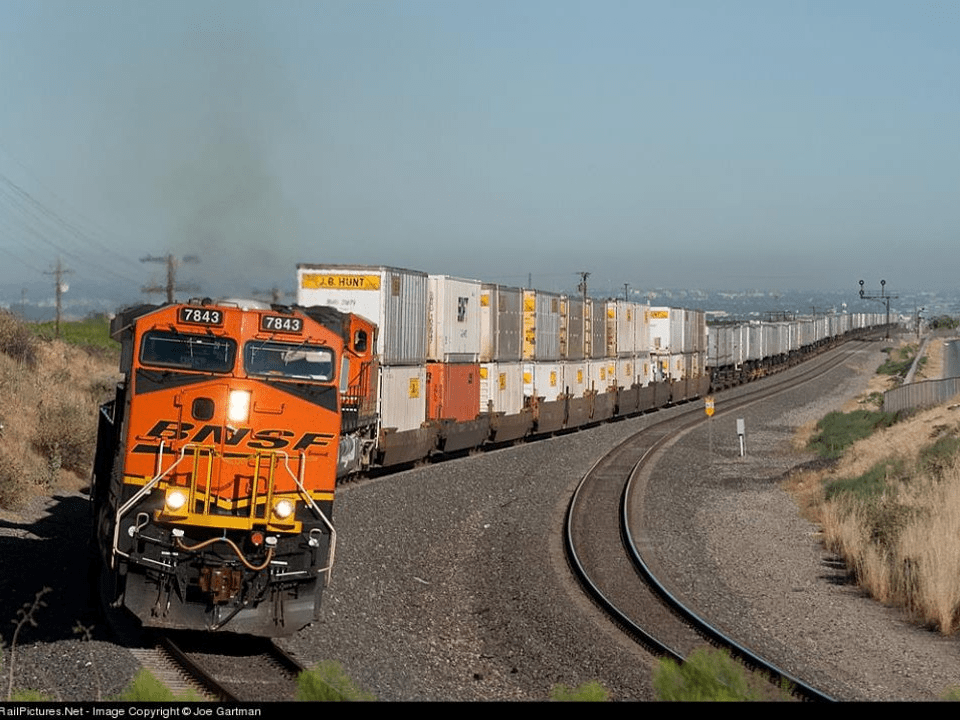This factor immediately distinguishes air freight from every other mode of transportation.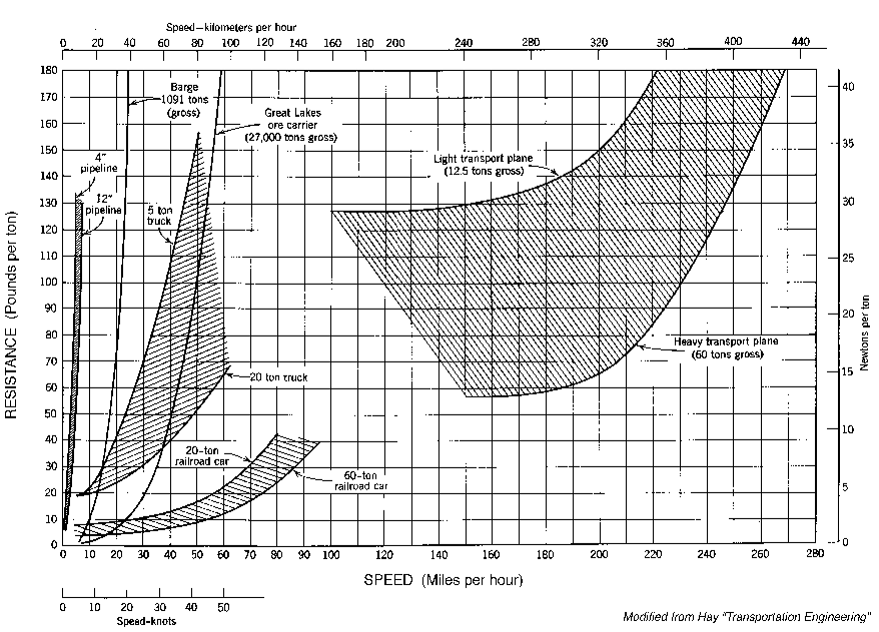
Speed
This mode of transport is the most energy-efficient per ton-mile.
Water transportation.
One average railcar can carry as much freight as approximately this many trucks.
Three.

On the map below, the rail network appears especially thick and dense around Wyoming and Montana. This reflects bulk movement of what commodity and from where?
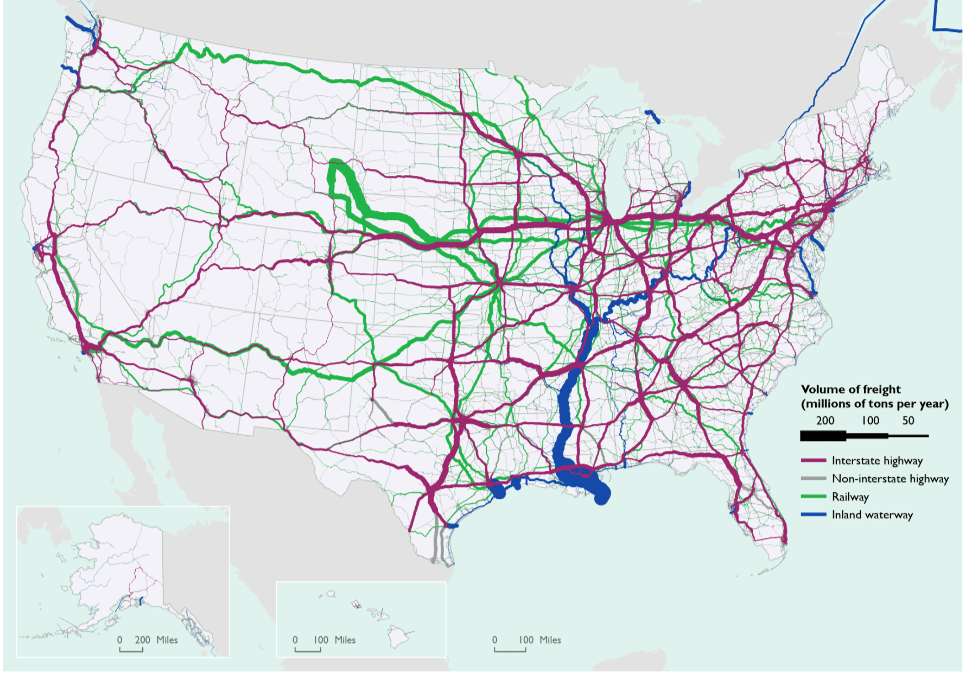
Coal from the Powder River Basin!
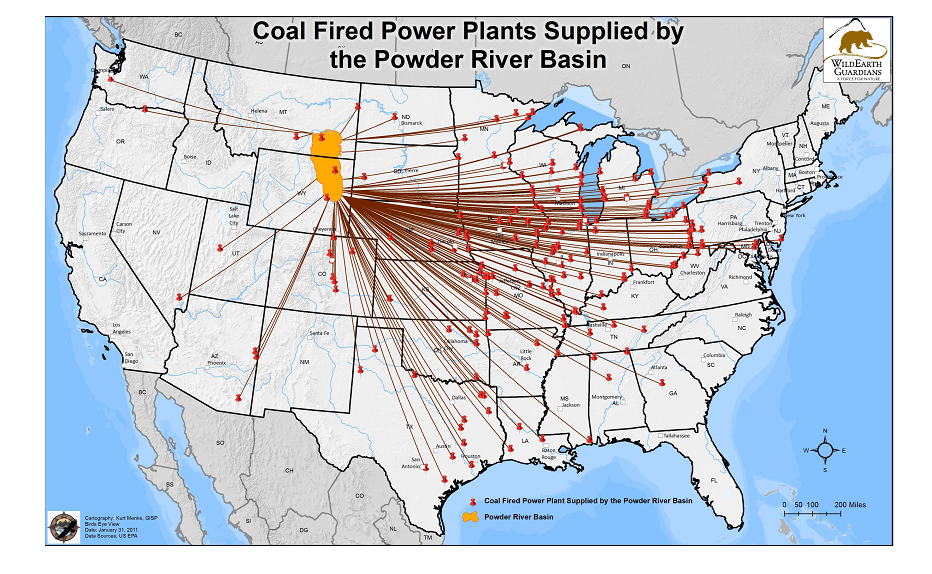
What do you see in the picture?
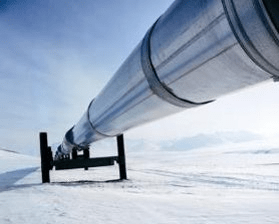
True or False:
Only certain modes of transportation is used to haul materials in the United States.
False.
All modes haul materials; the difference is in volume and type.
On the chart below, the 60-ton cargo plane shows much lower resistance per ton than the 12.5-ton plane at similar speeds. This illustrates economies of ______?
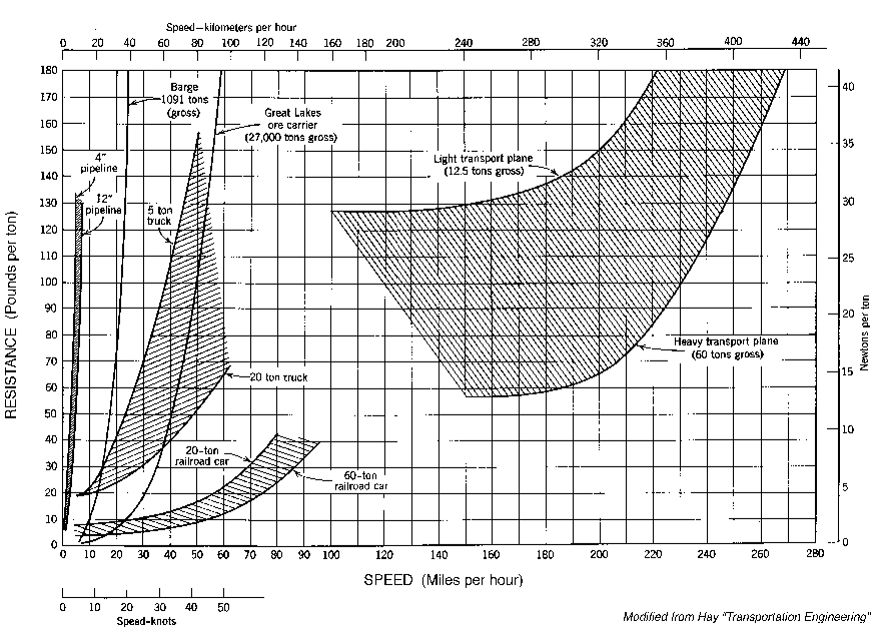
Economies of Scale.
A major advantage of water transport is its ability to carry huge amounts of cargo at a very low ______ per ton-mile.
Cost.
Trucks are valued for this advantage: they can go nearly anywhere, anytime, offering door-to-door service.
Flexibility / network coverage.
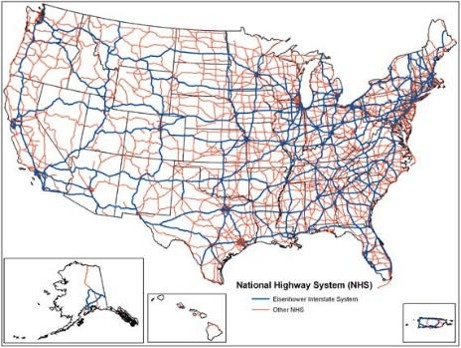
On the map below, the rail traffic is much heavier east–west than north–south. One reason for this is? Mention the mode and a major corridor.
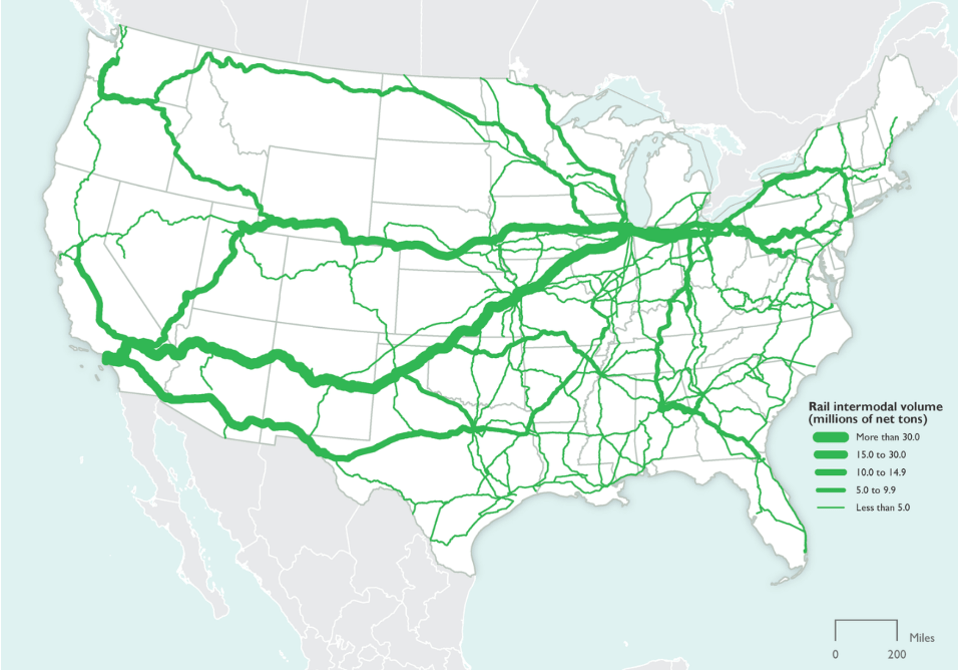
Water transport. Mississippi River system.
What do you see in the picture?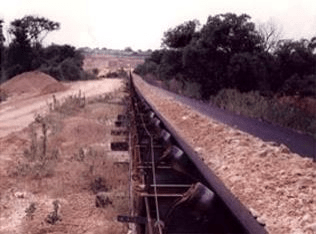
A conveyor belt.
All modes of freight transport are measured using this common metric, which multiplies the weight of the cargo by the distance traveled.
Ton-mile.
Unlike rail or pipelines, air freight is especially vulnerable to this common factor that can delay or cancel shipments.
Weather.
Great Lakes ore carriers show extreme changes in resistance per ton, but the change happens over a very small change in ______.
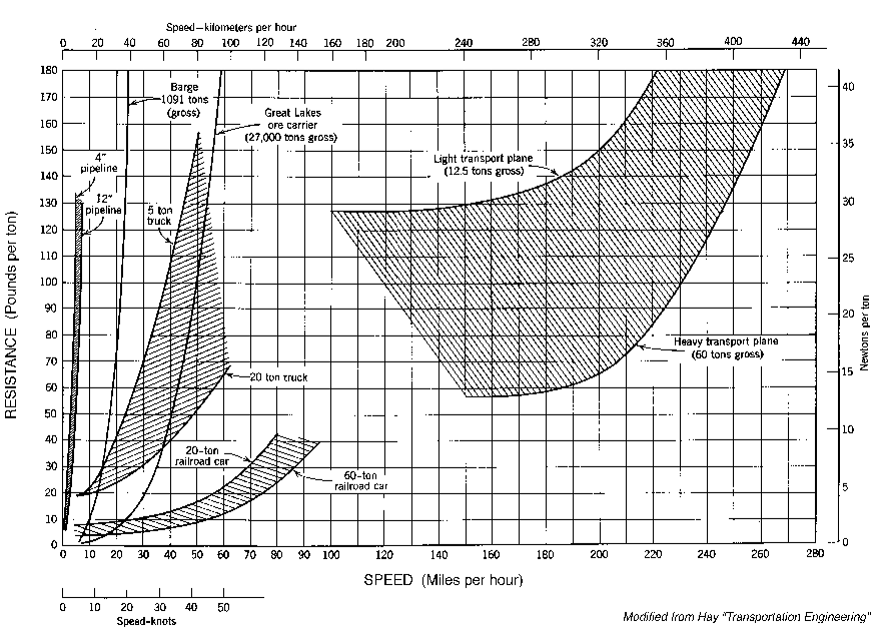
Speed
A downside of trucking is that it shares roads with passenger vehicles, which increases both of these problems.
Congestion and safety risks.
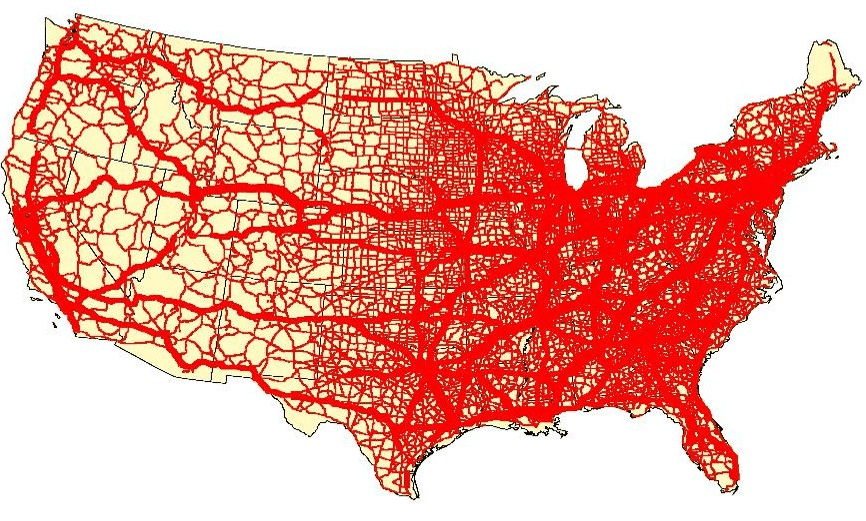
At 60 mph, how many times is the resistance on a 20 ton truck larger than a 60 ton railroad car?
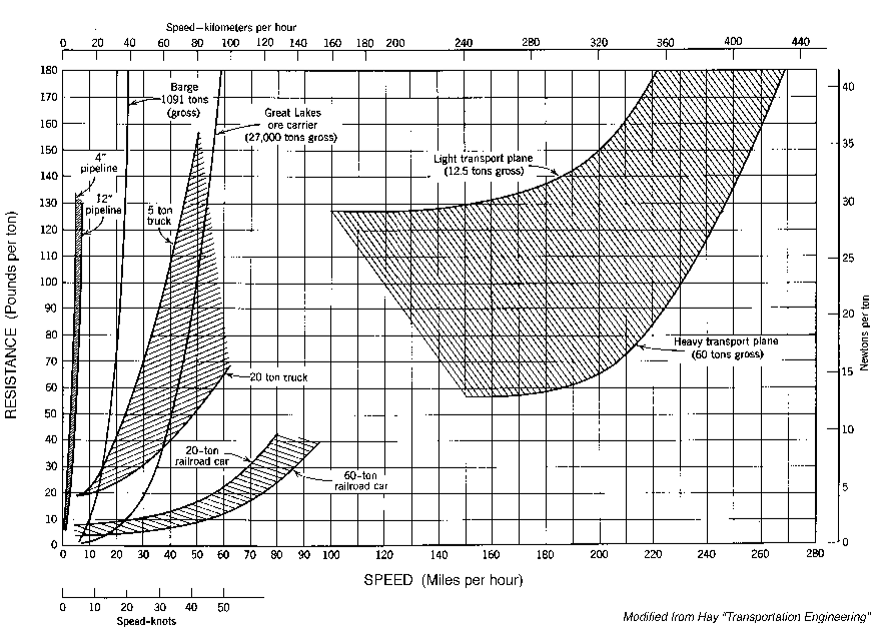
About 6-7 times.
One of these modes moves liquids, gases, or slurries long distances with no vehicles, while the other moves bulk solids like coal or ore short distances inside factories or mines. Name which is which.
Pipeline for the liquids/gases/slurries.
Conveyor for the bulk solids.
A company needs to move three different commodities:
10,000 tons of grain from Iowa to New Orleans for export.
Electronics from California to New York, needed in 2 days
Crude oil from Texas oilfields to Gulf Coast refineries.
Barge (or rail → barge) for grain?
Air freight for electronics?
Pipeline for crude oil?
Air transport connects continents in hours, but most freight still needs another mode at origin and destination because airplanes cannot provide this type of service.
Door-to-door service (or first/last-mile delivery).
This river system is the backbone of U.S. inland waterway freight, moving grain, coal, and petroleum from the Midwest to the Gulf.
Mississippi River system
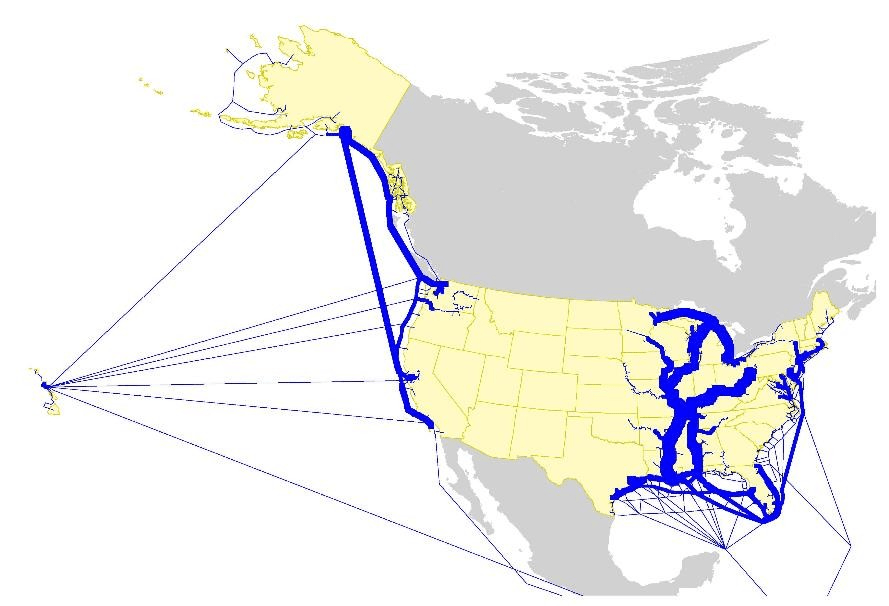
Despite their speed and reliability, trucks are less efficient than rail or water when measured by this metric.
Energy use per ton-mile
Rail is known to be the most fuel-efficient way to move freight over land. On average, one gallon of fuel can move a ton of freight about how many miles by rail? - Give a range within ±50 miles.
425 - 525 miles
On some routes, you’ll see multiple parallel pipelines. It’s not just about extra capacity — the main reason is that these can’t always be moved in the same line.
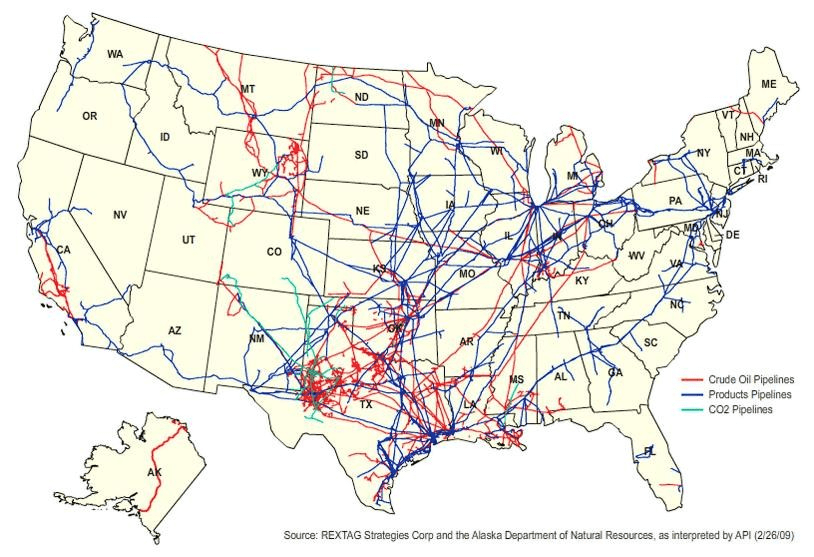
Different products are not always compatible, so pipelines are often dedicated to certain products.
A factory needs raw materials delivered directly to its gates, without relying on rail sidings, ports, or terminals. Which mode provides this flexibility almost everywhere in the U.S.?
Trucks.
Aircraft experience much wider range of resistance per ton than ground or water modes. This is the main reason why air freight has high _____ cost.
Fuel/energy.
Despite its large capacity, water transport suffers from these two major drawbacks: it is relatively slow and limited by this.
Limited network of navigable waterways.
At least three drawbacks of trucking industry are?
Energy efficiency, safety, land use, pollution, cost, congestion
What is this image about and where is it?
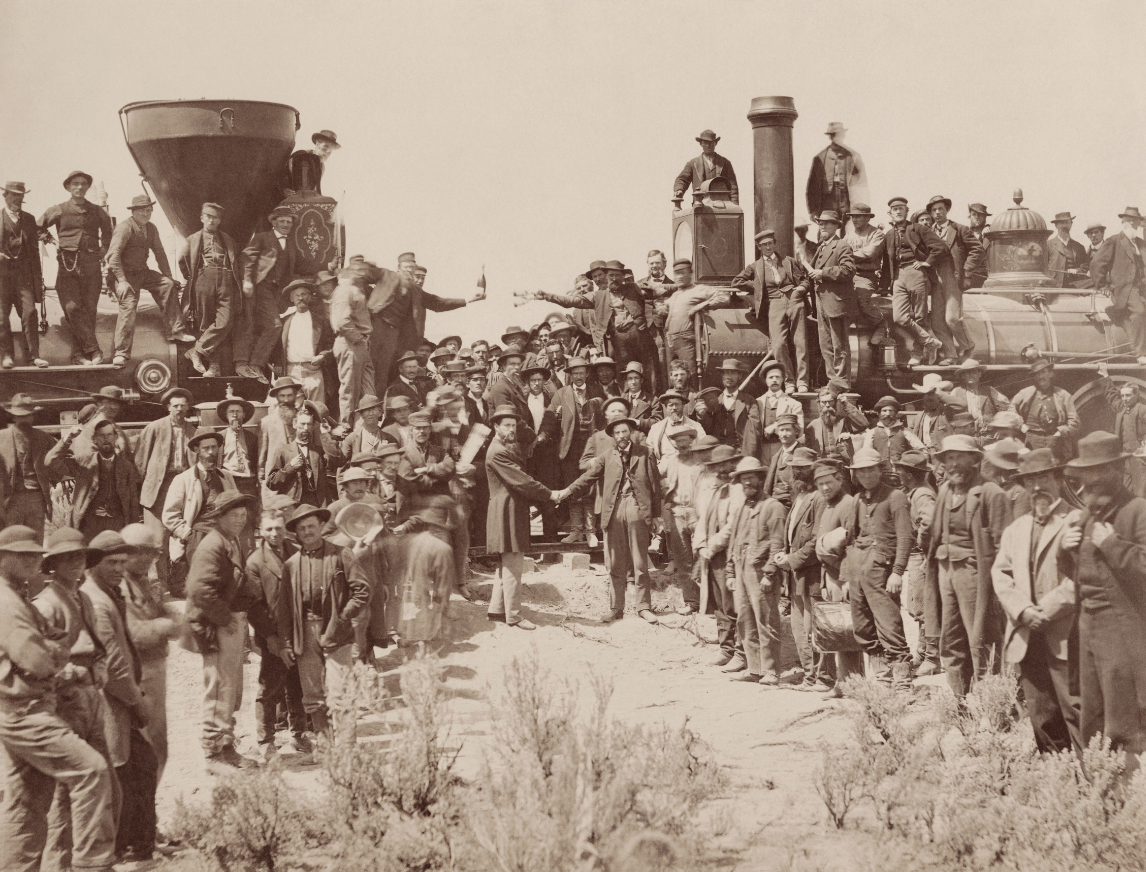
Golden Spike ceremony / the completion of the Transcontinental Railroad at Promontory Summit, Utah.
In this chart, only this mode shows nearly constant resistance regardless of speed.
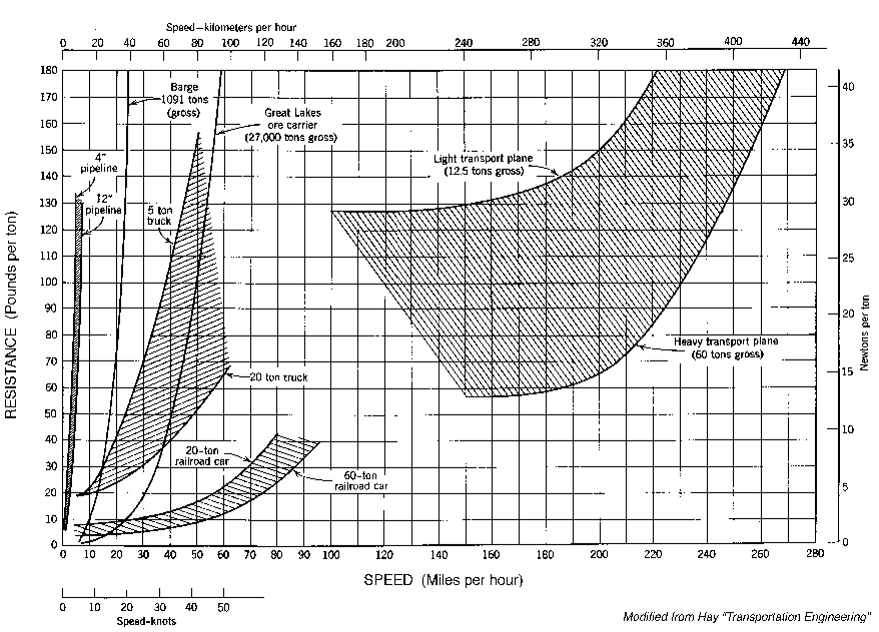
A pipeline.
Other acceptable answer: Barge and Ships
This is the principal means of economically
moving large, heavy freight long distances overland.
The railroad.
